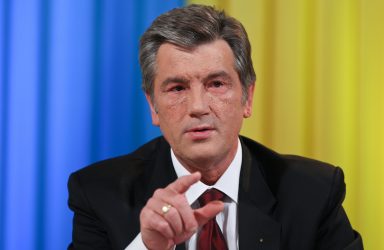Lebanon’s Reformed Electoral Law – Is the Cup Really “half full”?
Following a provision of the Doha agreement, signed by Lebanese political leaders to put an end to the May 2008 crisis, the Lebanese parliament discussed the country’s Parliamentary Electoral Draft Law and voted for reform on September 29th, 2008. But many of the proposals made by the National Commission were rejected, leading Minister of the Interior Ziyad Baroud to qualify it as “a cup half full”. But is this too optimistic?
Understanding the fall of the wall and other time tales
The 20th Anniversary of the Fall of the Berlin Wall offers has understandably generated a number of opportunities to look backwards to what happened, and to ask why it was that IR specialists seemed unable to see what was coming.
Neoconservatism and American Foreign Policy
Neoconservatism’s approach of democratising the Middle East via military intervention, tempering terrorism in the area, and dealing with Iran decisively has already formed the core of Obama’s policy package, all continuations from the Bush administration.
The European Union: A Global Power?
The EU is generally not regarded as a ‘global power’: its internal division over the US-led intervenion in Iraq and its lack of a coherence towards the wars in the Balkans are cited as prominent examples of its weak standing in global politics. It is only in recent years that an increasing number of academics have emphasized the unique tools it holds to influence international relations.
The United States’ Global Empire
Over the past century the U.S. has risen to be the undisputed world power, with its tentacles of influence sprawled across the globe, leaving almost no state untouched. However, does this significant power and influence construct qualify the United States for imperial status? Does its lack of territorial dominions, vassals, or a greater U.S. controlled commonwealth disqualify it from being an imperial power?
A Discussion of the Dilemmas Posed by Dershowitz as to Whether the ‘ticking bomb’ Terrorist Should be Tortured
This essay will discuss Dershowitz’s arguments as to why the so-called ‘ticking bomb terrorist’ should be tortured, and seek to counter them, concluding that it is too dangerous to legalise the use of torture, even in extreme circumstances.
Emancipation: Philosophical Conundrum or Objective Reality?
This essay will investigate a discourse which may shed some light on a way of assessing whether or not a Critical approach to society leaves us with an objective purpose. This will be achieved by using a direct comparison of literature within Critical Theory and the Allegory of The Cave as set out by Plato within his work The Republic.
How the West and the Rest Are Permanently Intertwined: A Critique of Samuel P. Huntington’s “The Clash of Civilizations”
Due to the time that has elapsed since Huntington wrote his article it is easy to criticise any lack of foresight in terms of technological development. However, it is important to highlight the fundamentally erroneous assumptions of modern day diplomacy made in his article.
Ukraine’s Orange Revolution Five Years On
The story of how Yushchenko came to power with high domestic and international expectations that he largely failed to fulfill will be a fascinating area for future research.
Precise Definitions of Poverty: The Pros and Cons in Latin American Poverty Reduction
The way policy makers define poverty dictates the types of strategies that they use for alleviation, and their success. In Latin America numerous definitions have been employed, the current favourite being the profiling approach. This essay examines the various definitions of poverty on offer to Latin America, and the problems associated with each of them.




